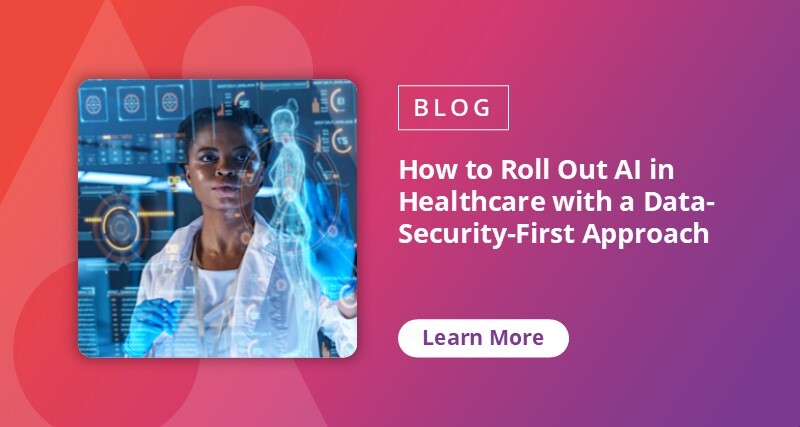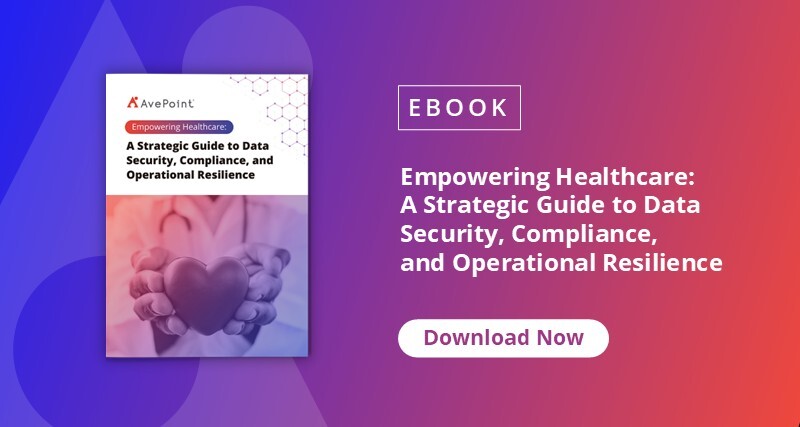Melbourne, Australia, once again played host to one of the Southern Hemisphere’s most dynamic gatherings of healthcare innovators, technologists, and thought leaders — the Digital Health Festival (DHF) 2025. Held over two vibrant days, this year’s event brought together over 8,000 attendees, 300+ speakers, and 250+ exhibitors, all united by a common goal: to shape the future of healthcare through digital transformation.
AvePoint was a proud sponsor of the DHF and had the opportunity to speak to attendees and listen to speakers to gain valuable insights. The common goal was evident: to deliver a patient-first approach to care. With many attendees serving on the front line and saving lives, everyone’s stories focused on the desire to improve healthcare for patients. AvePoint solutions focus on enabling these caregivers with technology that helps rather than hinders.
Three key themes from the festival stood out:
- AI and automation in healthcare are here now. From predictive diagnostics to AI-powered patient engagement tools, startups and established organisations alike showcased how machine learning is streamlining workflows and improving patient outcomes.
- Cybersecurity and data privacy are mission-critical. With the rise of digital health records and connected devices, protecting patient data is more critical than ever. Building resilient systems and governance frameworks to safely navigate the evolving regulatory landscapes is a “do-it-now” task.
- Interoperability and integration are needed. A major pain point in healthcare is the difficulty in accessing siloed and legacy systems that hold critical information. Open APIs, data standards, and collaborative platforms are needed to enable seamless data exchange.
While these digital transformation initiatives are necessary and hold immense promise for revolutionising healthcare delivery, they face headwinds that need to be addressed for successful implementation across the sector.
Critical Issues in Healthcare's Digital Transformation
The following are three key challenges for the industry:
Resource Constraints
Financial limitations are a significant barrier to adopting new technologies and improving existing systems. Resources often are allocated to front-facing clinical care first, leaving information management systems or data security underfunded. Healthcare systems are under constant pressure to meet increasing demands and provide more advanced capabilities.
While AI tools, such as AI Scribe, provide doctors with time savings of up to 85%, this doesn’t necessarily translate to more time in their day. Instead, it typically means more patients can be seen during the day. Population growth has led to increased demand for hospitals. Thus, technology is critical to keep up with the rising needs of the healthcare system. One of the overarching themes from this year’s DHF was how to do more with less.
Andrew Dome from the Uniting Church Synod of ACT and NSW presented “Lessons Learned in Responsible AI Adoption — Uniting’s Case Study,” and described how Uniting developed a digital assistant “buddy” that serves as an AI tool for frontline workers to get quick access to critical information when they need it. Reducing the time spent trying to find the right information has resulted in workers having more time to provide care to patients.

Consolidation and Standardisation
In Victoria, a major reform is underway to consolidate the state's 76 individual hospital services into 11 Local Health Service Networks, echoing similar transformations in New South Wales, South Australia, and Queensland. This restructuring aims to standardise healthcare delivery, improve efficiency, and enhance patient outcomes by streamlining operations and reducing duplication. A new central agency will be established to oversee budgeting, digital transformation, and shared services across the networks.
Importantly, the reform promotes collaboration while preserving the identities and governance of local health services. While the initiative promises improved access to specialist care and more consistent service quality, it also introduces uncertainty for staff and leadership, requiring significant cultural and operational adjustments.
In the headliner session, Emily Mailes and Sharon Hakkennes from the Victorian Department of Health spoke about Victoria Health's 10-year digital plan, which addresses underinvestment, fragmentation, and complexity in the healthcare system and opportunities for improvement while outlining steps for progressive improvement and modernisation for healthcare to better leverage technology.
Data Management and Compliance
Many healthcare agencies are navigating complex transitions from outdated legacy systems to modern platforms like Microsoft 365. Legacy systems often struggle with security vulnerabilities, data overflow, and inefficiencies, making them ill-suited for today’s demands.
Compounding the challenge is the need to manage vast volumes of both digital and physical records while ensuring compliance with evolving data privacy regulations. As electronic medical records (EMR) become more prevalent, retiring obsolete data and modernising information management practices are critical steps in improving operational resilience and patient care.
While many organisations are still struggling with legacy systems, many healthcare providers are utilising AI. In the session called “Evaluating Wave 1 of AI in Healthcare,” Louise Schaper, Professor Chris Bain, Dr. Amandeep Hansra, and Mallike Thanky discussed how AI is being used in healthcare, sharing how AI is different from any past digital transformations due to the speed of change.
While AI is evolving almost daily and comes with a lot of uncertainties, healthcare has historically been based on solid facts and research; take the instance where it can take up to 15 years to get a new medicine to market. Uncertainty is thus not embraced easily. During this session, the panel agreed that adapting to AI is not a matter of waiting for advice from the government, it’s about embracing it where it meets the needs and risk appetite of the healthcare organisation.
How AvePoint Empowers Healthcare Organisations to Tackle Modern Challenges
Doing more with less isn’t just a goal — it’s a necessity. With rising patient demand, tightening budgets, and accelerating digital transformation, healthcare organisations are under tremendous pressure to deliver high-quality care while managing complex operational and compliance requirements.
Financial constraints are a constant in healthcare, often resulting in technology systems being underfunded while clinical services take priority. AvePoint helps healthcare systems manage by consolidating multiple systems into a single, streamlined platform, and establishing processes to not only reduce licensing and infrastructure costs but also improve operational efficiency. This consolidation leads to significant long-term savings, freeing up resources that can be reinvested into patient care.
AvePoint optimises data management and eliminates inefficiencies by automatically improving the quality and accessibility of information. Clinicians and administrators are empowered to make faster, more informed decisions, saving time and money. This kind of impact goes beyond IT — it transforms how care is delivered to patients.
At AvePoint, we believe technology should be a strategic enabler, not another burden. That’s why we’re helping healthcare providers tackle their biggest challenges head-on. AvePoint isn’t just a vendor; we’re a partner in your digital health journey. Whether you’re navigating structural reform, modernising legacy systems, or preparing for AI-driven care models, we’re here to help you build a more resilient, efficient, and patient-focused organisation.
All in all, the Digital Health Festival 2025 proved that the future of healthcare is digital, collaborative, and patient-centred. By leveraging technology, optimising costs, and learning from other industries, healthcare organisations can improve efficiency, enhance patient care, and better manage their resources. As the industry continues to evolve, events like this are crucial for sparking innovation, sharing knowledge, and building a healthier tomorrow.


